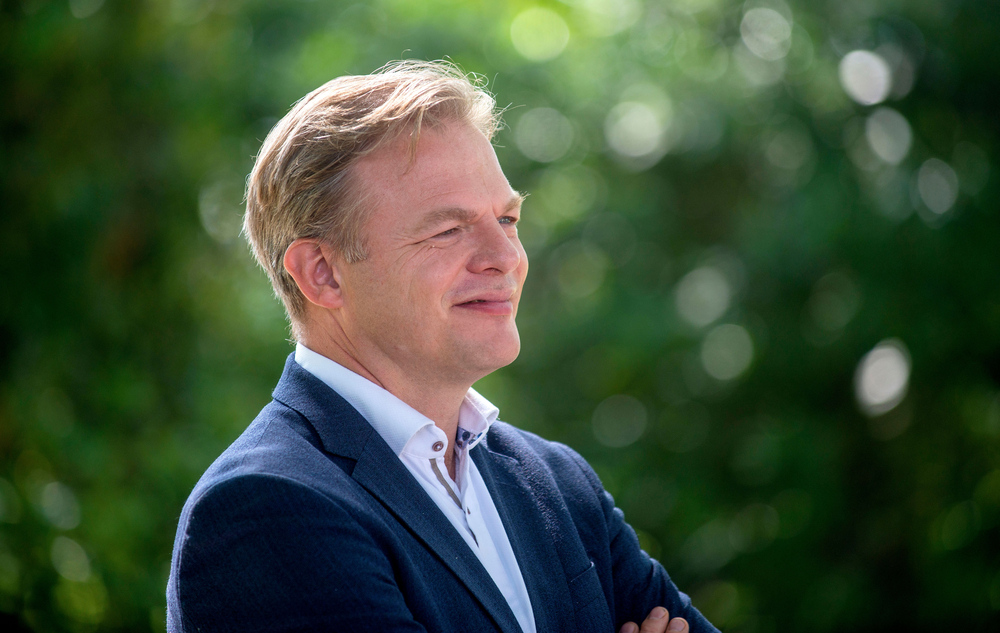
The old joke used to be that if you asked for directions in Ireland, the answer would begin: “Well, I wouldn’t start from here.” The same logic underscores Ronald Plasterk’s road map for forming the next Dutch coalition: if you want a stable government founded on mutual trust, you couldn’t do a lot worse than this quartet. Plasterk needed two rounds of negotiations just to drag the four protagonists to the start line, and when the gun fires there is still every chance they will hurtle off in different directions.
Last week there was heady talk of a breakthrough in the stand-off between Pieter Omtzigt and Geert Wilders over the small matter of people’s constitutional rights. Both men emerged from an intimate tea party with Plasterk to say they had “cleared the air” over Wilders’s promise to put his anti-Islam policies into “cold storage”. But this is the Netherlands in autumn, when the air only clears for long enough to allow fresh storm clouds to gather over the North Sea.
Plasterk’s scouting report made it plain that Omtzigt’s fundamental objections were undiminished. His solution was an extra round of talks between all four parties to see if they could agree to uphold the constitution before they even get into the substance of the coalition negotiations. Wilders, if he had shifted at all, had done the bare minimum required to persuade Omtzigt to sit down at the table with him, but the NSC leader will be supping with a long spoon.
“Plasterk brimmed with the misplaced confidence of a man whose house is full of bodged Ikea furniture”
The second major hurdle is that neither of the two medium-sized parties – NSC and VVD – wants to go into a coalition with Wilders, though both are happy to prop up a government containing the other. That leaves Wilders – whose own preference is for a majority coalition – with only the BBB as a willing partner. Dilan Yesilgöz is under pressure from the VVD’s rank and file to release the handbrake on a government with the PVV, but senior party figures – including Jozias van Aartsen, who oversaw Wilders’s departure from the VVD – have warned her it would undermine the party’s liberal foundations. The dilemma has the potential to trigger the kind of crisis of conscience in the VVD that afflicted the CDA a decade ago, and which has left the Christian Democrats suffering from the political equivalent of long Covid.
Plasterk nevertheless insisted that the four parties could come to some agreement. He brimmed with the misplaced confidence of a man whose house is full of bodged Ikea furniture. “The country has to be governed,” he said, echoing Omtzigt’s initial response to the election night results. The constitution wasn’t a big deal, he went on: almost all the parties had plans for institutional reform. “If someone wants to abolish the monarchy, that’s against the constitution, but they can still put it in their manifesto.” It was a breathtakingly disingenuous attempt by Plasterk to trivialise two decades of tub-thumping by Wilders, as if turfing the royal family out of their palaces was somehow equivalent to eroding the rights of a million Muslims by closing their schools and places of worship, banning their religious texts and proscribing how they dressed in public.
Wilders is likely to offer big concessions in order to secure the restrictions on migration he seeks, but it is doubtful if they will go far enough. Even with the most vicious anti-Islam measures and a referendum on Nexit off the table, Omtzigt has said the PVV leader must respect international treaties and court judgments. That means Schengen, which will be a road block for Wilders’s ambitions to shut the borders. It covers the Paris agreements, snuffing out his hopes of scrapping CO2 reduction measures. It includes the Council of State judgment on nitrogen compound emissions, making it impossible for the PVV to ignore the “non-existent nitrogen problem”.
Omtzigt’s problem is that he founded New Social Contract to make the institutions of government more trustworthy, more accountable and more efficient, but to achieve his aims he must do business with a man who has built a political career on undermining them. Wilders has called the Dutch parliament a “fake” institution, lambasted judges as “raving mad”, spent almost a decade in court disputing the question of whether calling for “fewer Moroccans” is discriminatory, which earned him a criminal record, and derided journalists as “low-life scum”. Omtzigt must know, deep down, that “good governance” and “Geert Wilders” are two concepts that do not belong in the same sentence. Sooner or later, he will have to find a different starting point.